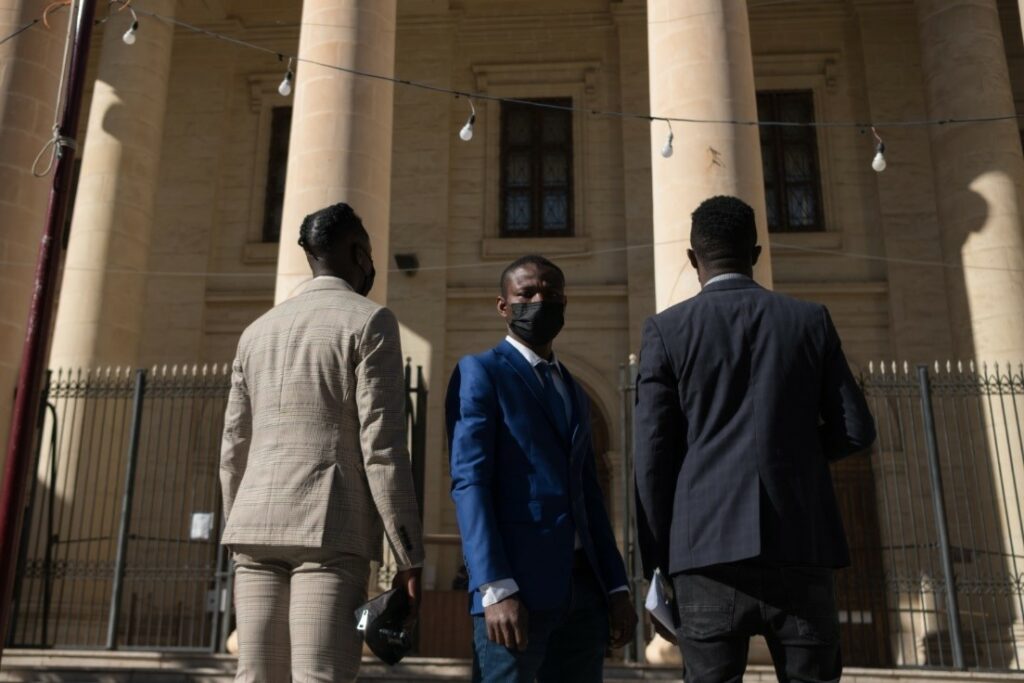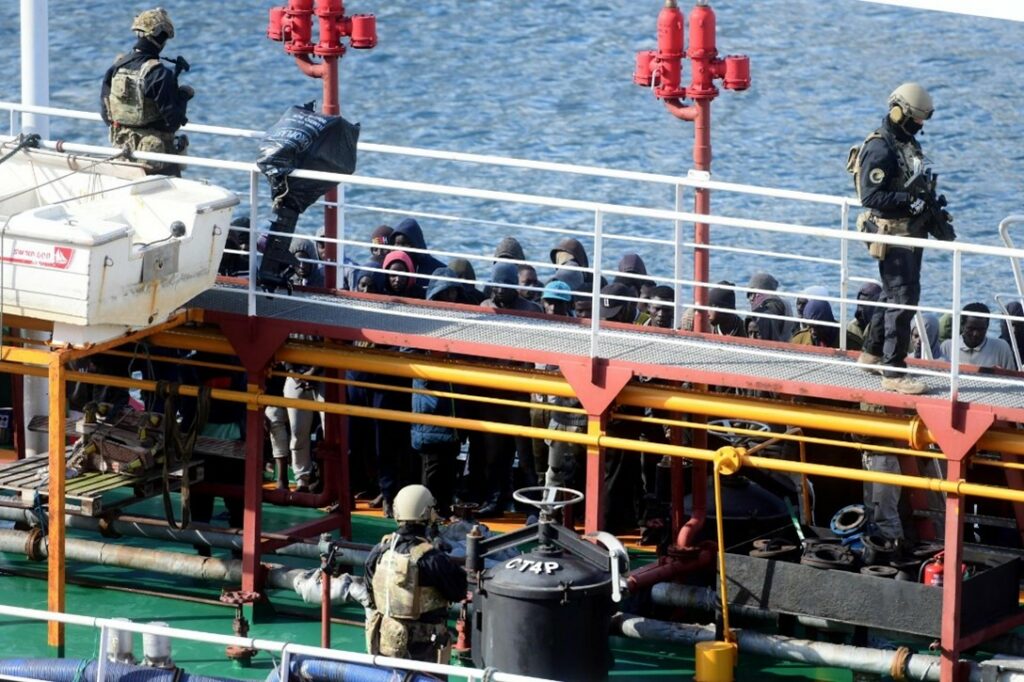
On June 26th, 2019, three African youths left the coast of Libya in search of a better life in Europe. Their rubber dinghy departs from Libya in the thick of night, overcrowded with men, women and children hoping to reach Italy.
But halfway through the journey, their boat starts to sink in the Mediterranean.
Spotted in the water by a European Union patrol plane, their rescue is on its way. The ship named after its captain Nada El Hiblu is a passing oil tanker heading to Libya.
Amara (15), one of the youths onboard, acts as a translator speaking English with the captain and French to the migrants. Their wish is to go to Europe.
But during the night, the captain changes course, continuing his journey to Libya.

As dawn broke, people recognised the familiar harbour, the lights of the Libyan capital Tripoli drawing closer.
Panic arose on the ship. Children started crying. People were screaming, beating their chests, saying they would rather die at sea than go back to Libya.
“Those people on the boat, they weren’t Libyans. Libya is not their country of origin. They would be handed to Libyan authorities, where they were likely to be detained in miserable conditions. We hear so many stories of people who were sold as slaves, stories of rape, abuse, torture, not to talk about extortion, etc.
“The point of the people onboard who were protesting returning to Libya were protesting a fate worse than death,” tells Katrine Camilleri, Director of Jesuit Refugee Service Malta.
The captain needing to restore calm leaves his cabin, asking Amara and the other teenagers to reach an agreement on behalf of the people onboard. He promises Malta, not Italy, and after two days at sea, steers towards the gated walls of Valletta.
Yet as he reaches the shore, he radios authorities that he no longer has control of his ship.
In Malta, turmoil was building, theories of pirates and then terrorists were circulating. By the time the ship docked at Senglea, police were waiting to detain the three teenagers, now known as The El Hiblu 3.

Spanning over three years, the youths await a trial which could sentence them to life in prison, the case is considered Malta’s way of making an example of the El Hiblu 3.
“It’s sending a message to the World, to the EU, that it will not tolerate anybody trying to breach its walls,” says Neil Falzon, the boys’ lawyer and the Director of Aditus, a Human Rights NGO in Malta.
For many refugees who come by boat, Malta is the first place they reach. The small island stands tall in the Mediterranean, with tall, fortified walls blocking the country from outside.
“Malta for the past 20 years, has seen itself as the Southern Bastion to defend Europe against invaders from North Africa. This has always been the policy mantra of government in terms of the policies and legislation in place,” adds Falzon.
10 minutes outside the capital Valetta lies Marsa, a prominent town for housing migrants and refugees. Out of sight from central tourist hotspots. The city contrasts the aesthetic buildings of Valetta with rubbish scattered on the streets and broken windows decorating many of the buildings.


Next to the sewer, the water surrounding the Open Centre is dirty and polluted with rubbish floating on its surface. The water outlines the building isolating it and the people within.
For the migrants loitering outside, English is poor, with many of them speaking in fragments or broken sentences.


Hassan (36), travelled to Malta in 2008, undocumented. He migrated from Somalia to Libya and spent 42 days in the Sahara before he was able to pay for passage to Europe on a boat. He climbed aboard the small, 28-person dinghy with only water and a small lifejacket arriving in Bugibba, Malta, after three days where authorities were waiting.
“They wait for us when we come off the boat. They catch us and take us to prison. At that time, he take a lot of pictures, like criminal, they take our fingerprints. I go in jail because we cannot go outside. The military catch us”.
Hassan lived in Hal-Far Hanger Open Centre for seven months, with 16 people in one container. He was detained upon asylum.


After processing, Hassan was moved to Marsa Open Centre, where he stayed for one year as per the limit.
Struggling to find meaningful work, Hassan works two jobs in Malta: Construction from 9-5 and Uber until 11.
“The boss gives me work, but not everybody like the work. Life in Malta is hard, but it’s better,” he says.
Since arriving in Malta, Hassan has integrated. He lives in Hal-Far with his wife and their three children.
He says his life is here now, but his opportunities remain limited without citizenship.
His oldest daughter receives his citizen status too, meaning she also is not recognised as a citizen.
“There are children born in Malta who are considered to have the citizenship of their parents and are approaching adulthood without documentation. It’s a very limited existence because you can’t access long-term residency, university or even employment,” says Camilleri.
Due to his status, Hassan cannot travel within or outside the EU apart from returning to Libya. His children sharing his status share the same confinement, to an island of 316km2.
Falzon argues the main challenge facing migrants is a closed mindset. Policy remains immobile as legislation becomes stricter to keep more people from coming.
“As long as Malta remains unwilling to welcome refugees and migrants, nothing will translate into action,” he says.
